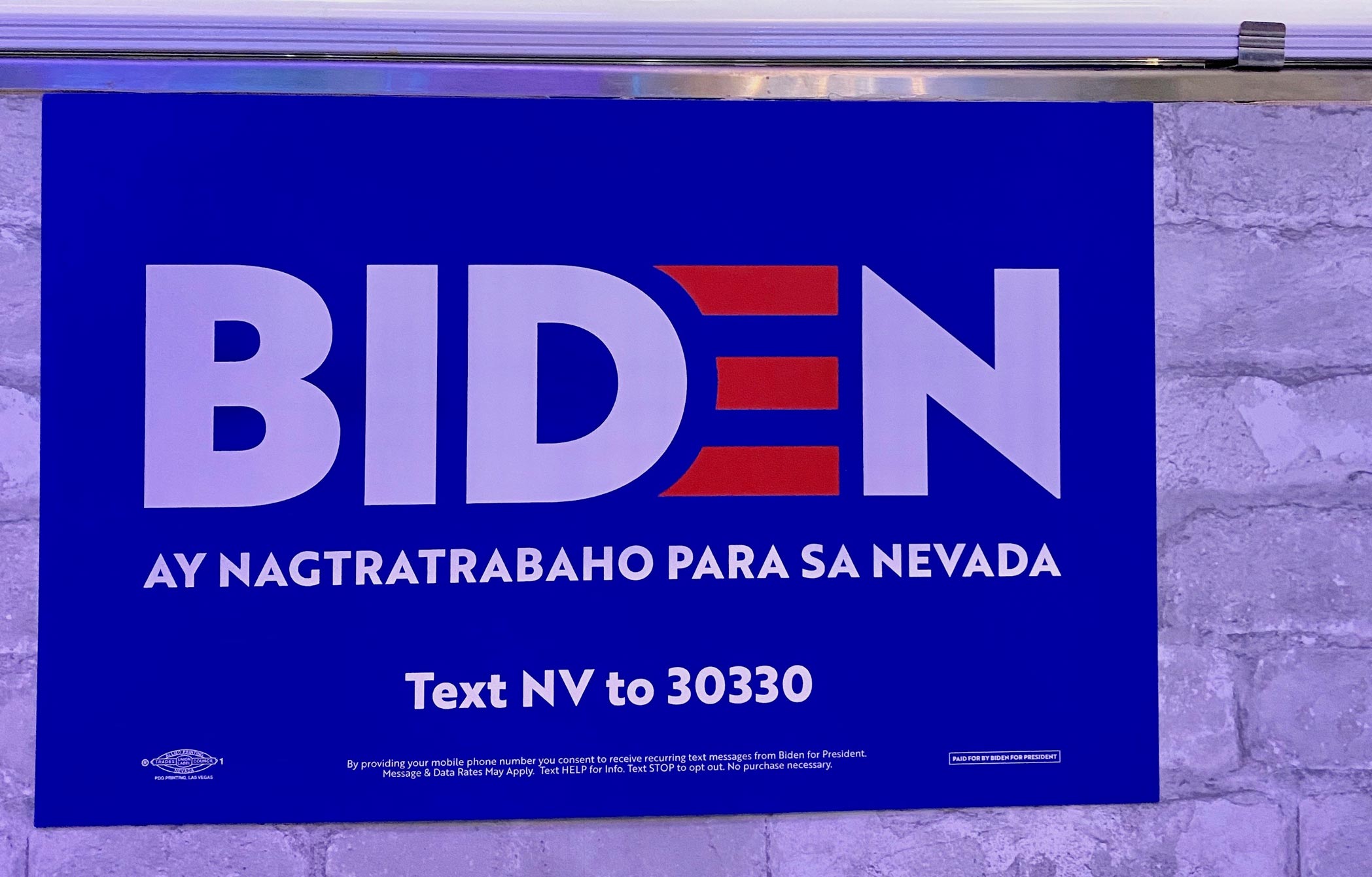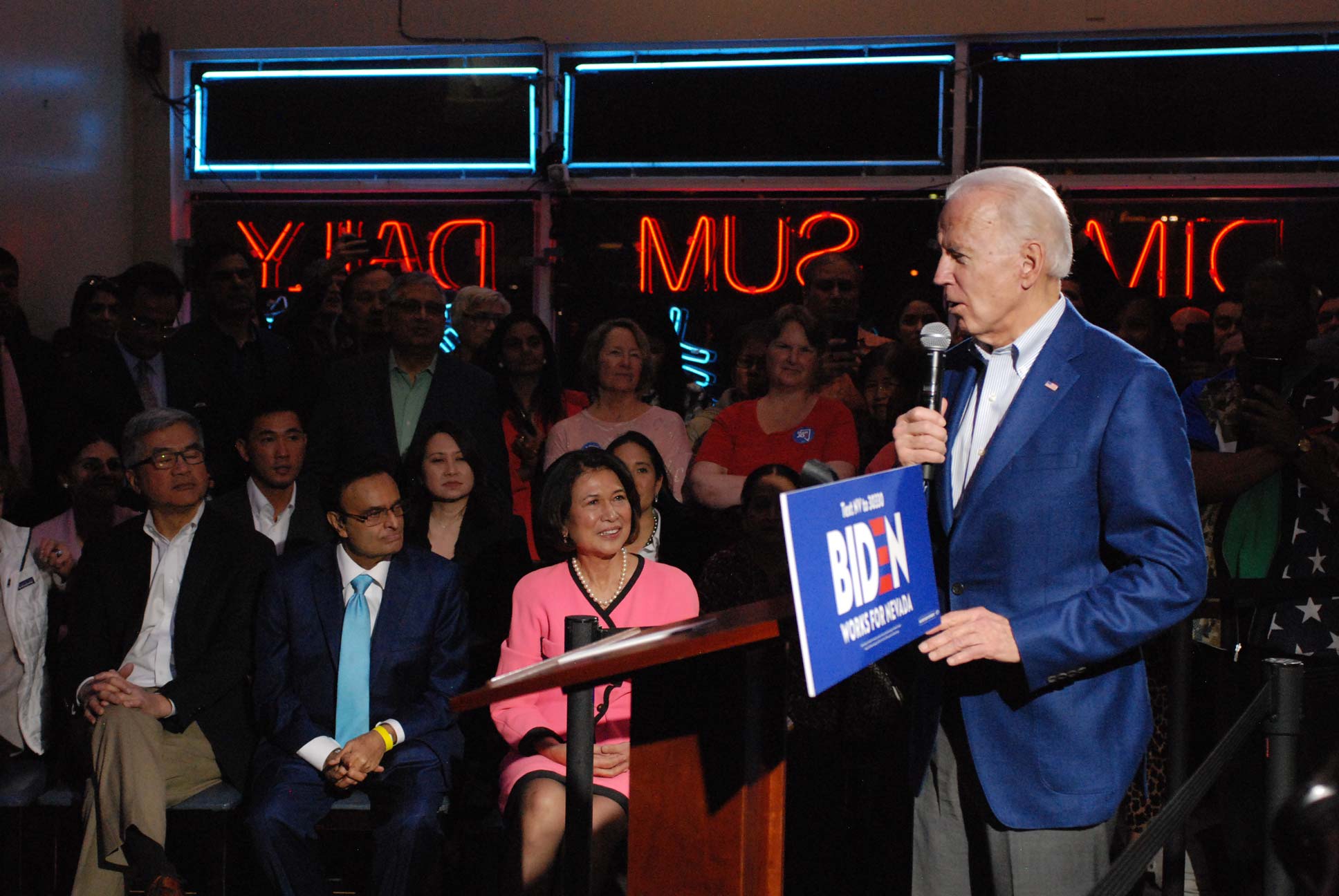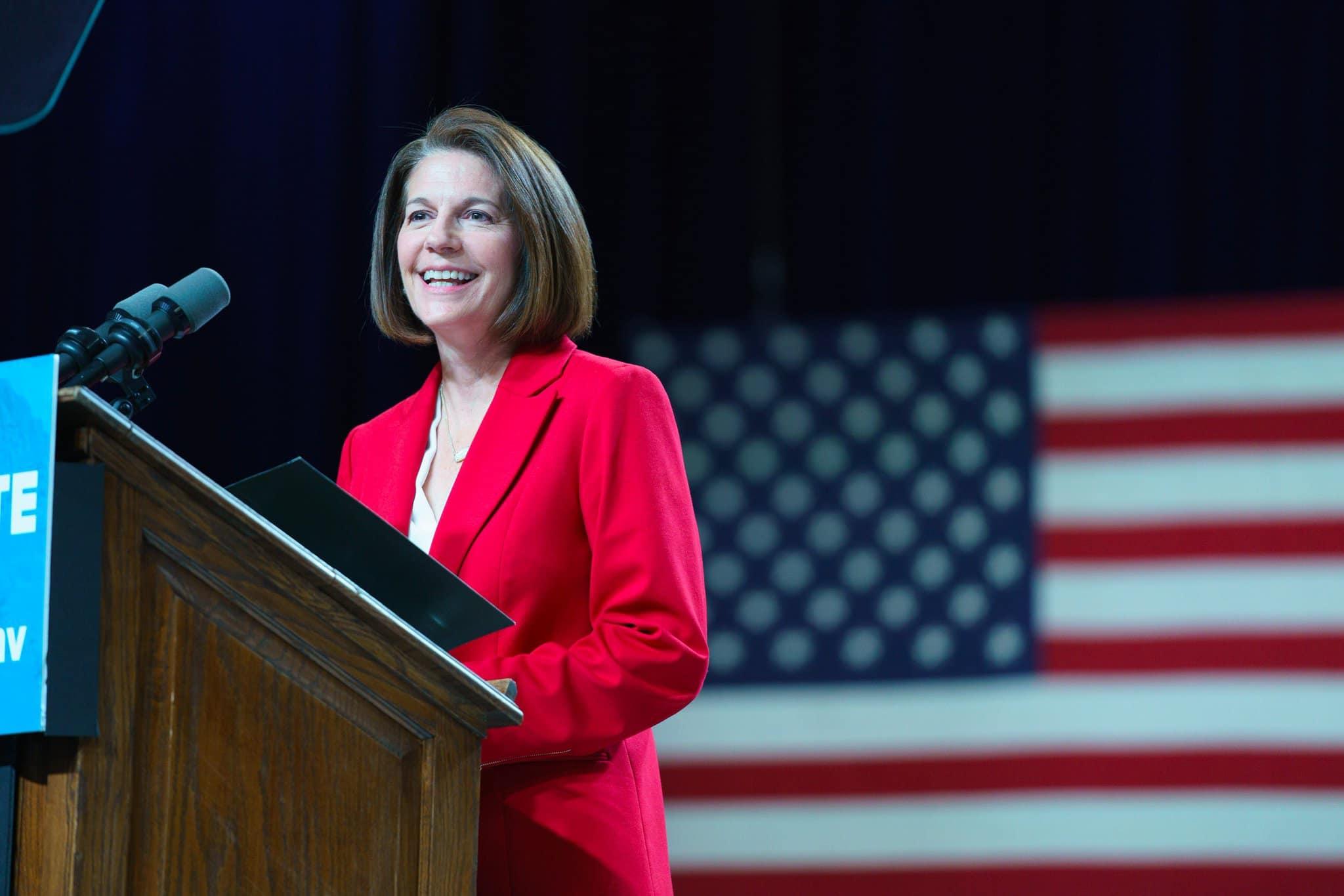
WITH Election Day less than three months away, Filipino Americans in Southern Nevada are ramping up efforts to ensure that the community shows its voting power as the largest Asian American group in the state.
For Gloria Caoile, a labor leader who has been involved with civic engagement efforts for the past two decades, an election cycle has meant hosting events that would be culturally relevant for Fil-Ams, be it kamayan feasts with elected officials or in-language canvas trainings.
“The citizen age population, those who are eligible to vote, total over 200,000 and again, half of that are Filipino Americans. Most [of them] live in Clark County so we are aggressively reaching out to them to make sure they are registered to vote,” Caoile, who is volunteering as a senior advisor for the national Fil-Ams for Biden group, told the Asian Journal.
The presence of Fil-Ams in the state, and particularly in Clark County, is significant that election materials are available in Tagalog, in addition to English and Spanish, Caoile added. The cards for this year’s caucus were translated into Tagalog for the first time.
The county is also in need of poll workers, especially those who can speak Tagalog, for the early voting period and on Election Day, and is increasing the hourly pay rate. (In response to coronavirus concerns, state lawmakers earlier this month approved a plan to send absentee ballots to all active voters this November.)
As Asian Americans and Pacific Islanders (AAPIs) comprise 10% of the Silver State’s electorate — and 61% of them in the county alone — candidates have made it a point to visit the communities to court their votes.
Nevada, similar to recent cycles, is a battleground state where these voters can have the most impact in races down the ballot, according to a recent analysis by AAPI Data.
“Nevada has and continues to be a swing state. In communities like these, the Asian community can be the difference in an election,” Dan Santos, chair of Clark County’s Asian American Pacific Islander Democratic Caucus, told the Asian Journal.

Ahead of the state’s caucus in February, Biden, now the Democratic Party’s presidential nominee, held an event in Las Vegas’ Chinatown, wherein he boasted the Obama administration’s strides on a record number of AAPI appointees and on issues like the long-awaited compensation payments for Filipino World War II veterans. Likewise, Biden’s running mate, California Sen. Kamala Harris, held an event with the AAPI community last year while she was still seeking the presidential nomination.
Under a pandemic, voter outreach this time around means getting creative and employing other socially distant tactics.
“Unfortunately, social gatherings, one of our more loved customs, have been taken away from us. We have come up with programs that increase communication via virtual meetings, phone calls and text messaging. Our message is ‘every vote counts,’” Caoile said.
Santos said that there will be more phone banks and virtual spaces to engage with elected officials and to speak up about the issues that are affecting the community.
As Fil-Am History Month falls right before the election, there’s also an opportunity to put this year’s election into context with the month’s theme celebrating the history of Fil-Am activism in the U.S.
“Most folks don’t know that historically, our activists were directly involved in pushing for issues that the Democratic party continues to champion today,” Santos added, referencing labor organizer Larry Itliong’s role as a delegate at the 1972 Democratic National Convention. “My colleagues and I at AAPIDC hope to continue to share these stories to remind folks of the importance of voting and standing up for democratic values and principles.”
In addition to getting eligible voters registered and training on voting under the pandemic, local Democrats are doubling down on what the next administration would look like under Biden and Harris and how the Fil-Am community fits into that.
“As a proud son of immigrant parents from the Philippines, I was devastated by Trump’s inhumane family separation policy. Additionally, Trump’s response to the Black Lives Matter movement speaks volumes about the immense power and privilege he holds as a white man – law and order cannot be demanded at the expense of human lives,” said Craig Valdez, 24, a community activist and program manager for an organization that prepares individuals with immigrant heritage for civic leadership. “His continuous utter disregard for families, children, and humanity is completely unacceptable. I’m optimistic that a Biden-Harris admin will restore dignity to the White House and this country’s people.”
Also a second-generation Fil-Am, immigration is another policy that hits home for Santos, citing the Trump administration’s policies against immigrants, such as changing the public charge criteria and separation of families at the U.S.-Mexico border.
“I trust that the Biden-Harris ticket will modernize America’s immigration system and push for a pathway to citizenship for thousands of undocumented individuals who have called this country home for years,” Santos said. “We must continue to protect Dreamers and their families and develop a more humane and sensible approach to immigration.”
But with a majority of Fil-Ams in the county as front-line workers in the medical field and other service-related jobs and small business owners, managing the COVID-19 spread and recovery afterward will continue to be top of mind as they cast their ballots.
“The pandemic has revealed the importance of the government’s role in our lives,” Santos said, adding, “Even before the shutdown, our Asian American small business owners bore the brunt of this treatment, leading many to close down shops entirely. Our front line workers, including nurses and caregivers, have been putting their lives at risk to combat this pandemic. The lack of adequate PPE and the need for hazard pay are huge issues that need to be addressed nationwide.”
Early polling data released this week by AAPI Data showed that registered Asian American voters nationwide are leaning toward Biden (54%), whereas 29% say they are inclined to vote for President Donald Trump. Meanwhile, 16% of the voters surveyed say they’re still undecided.
“If they vote for Trump, then they don’t have hope. He will continue to promote racism, bigotry, anti-immigration sentiments. Trump is incapable of leading our country out of this health care and economic crisis,” Caoile said.






